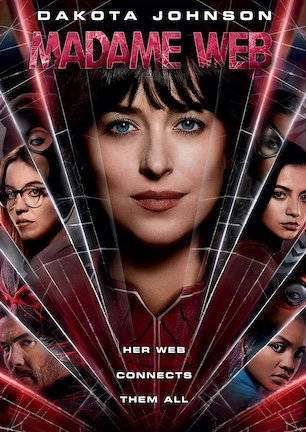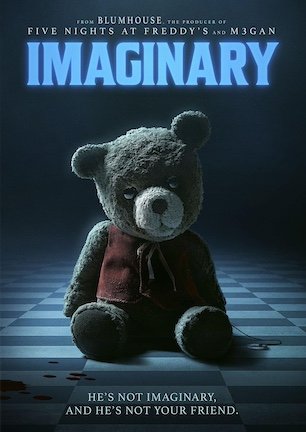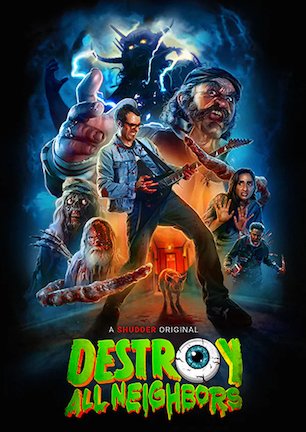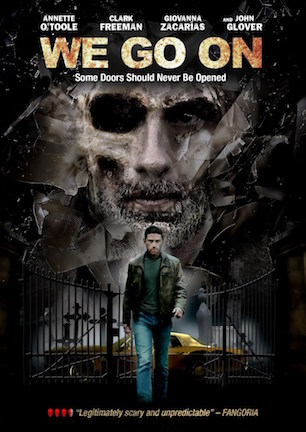Studio: Magnolia Pictures
Director: Jaume Balaguero, Paco Plaza
Writer: Jaume Balaguero, Manu Diez, Paco Plaza
Producer: Julio Fernandez
Stars: Jonathan Mellor, Oscar Sanchez Zafra, Ariel Casas, Alejandro Casaseca, Pablo Rosso, Rafa Parra, Pep Molina, Andrea Ros, Alex Batllori, Pau Poch, Juli Fabregas
Review Score:
Summary:
Flanked by a SWAT team, a doctor enters a quarantined apartment building to discover the source of a demonic viral outbreak.
Review:
[REC]2 joins “Halloween II” and “Friday the 13th: The Final Chapter” (review here) as a horror follow-up whose story picks up literally right where its predecessor left off. Whereas those other two sequels strode seamlessly into the footsteps of the previous films, [REC]2 confusingly rewrites continuity slightly for a second chapter that gets off to a bumpy start.
Ministry of Health official Doctor Owen readies to enter the quarantined apartment building with a well-armed foursome of fearsome SWAT agents. When the first [REC] (review here) ended, TV host Angela and her cameraman Pablo had just barricaded themselves in the penthouse after being chased by a ravenous horde of infected humans. Within minutes, Pablo was dead and Angela was pulled into the darkness. As confirmed by [REC]2’s timeline-jumping ending, Owen and his armed officers enter the building mere moments after Angela is first dragged away. Yet strangely, they encounter a stairwell that is completely devoid of activity. Where did all of those manic zombies go in the ten minutes since they collectively swarmed the penthouse door?
I cheated by taking another look at [REC]’s conclusion. At least six or seven zombies chased Angela and Pablo up those steps, yet none of them are anywhere to be found. Jennifer’s mother, last seen chained to a railing in the lobby, is also missing, although a broken handcuff chain dangles in her place. She seems to appear later in the movie inside one of the apartments, so apparently the creatures all learned to turn doorknobs and went someplace else. Those with muddier memories might be less annoyed by the gap, but it is a distraction from the new movie when the mind is making more of an effort to line up the two films than the script is.
Ignoring previous fiction is not [REC]2’s only step backward. [REC] had a charming roster that was easy to pull for. Show host Angela was cute and likable. Sick little Jennifer was sweetly sympathetic. Even the mustached resident in the ascot who vamped for the camera was appealing in his awkwardness. [REC]2 leads with a quartet of armed men whose names are introduced in a fast-talking flurry, further confusing them as indistinguishable characters. Similarly outfitted in identical helmets and riot gear, determining who is who based on unique personality traits is impossible. Led by a grim-faced doctor callously barking orders, these central figures never have a chance to offer an extended hand of emotional appeal. By being armed to the gills, they are also less vulnerable than the firemen and residents who were completely unprepared for the danger that awaited them inside the same building.
[REC]2 switches up its narrative at the midpoint by jumping back in time and restarting its chapter from the perspective of three curious teens weaseling their way into the building. Clearly lacking in common sense by wanting to be on the inside of a building covered in plastic and surrounded by armed guards and health officials, it is a lateral move in likability by moving the spotlight onto a trio of bratty kids. They dumbly play with dropped handguns, openly defy authorities trying to save their lives, and annoy the audience as much as they do each other.
While [REC] employed a single camera, [REC]2 opens itself up more by mounting one on each helmet and putting another in the hands of the teenage trio. Directors Jaume Balaguero and Paco Plaza give themselves increased options for focusing on the action this way, yet squander it when perspective changes reduce the rhythm back to zero. [REC] was unrelenting with nonstop terror. [REC]2 constructs pauses into its storyline that loosen the tension to a point where opportunities are frequently offered to stop and stare at holes in the plot.
Anyone not behind the original’s demonic origin explanation for the viral outbreak will be disappointed to see how far the sequel takes that thread into increasingly preposterous fantasy. I have no problems at all with the bacterial explanation for possession and appreciate the creative meld of pandemic contagion fears with Christian mythos. But when [REC]2 introduces an alternate world that can only be accessed in complete darkness, even the “found footage” format cannot keep the film grounded in an accessible reality that makes any meaningful sense.
None of this is to say that [REC]2 is a bad movie. It is a good problem for the filmmakers to have in that they are following a film so exceptional that a subsequent installment can only pale in comparison. [REC]2 duplicates the original’s plentiful jump scares and operates successfully on a visceral level when detached from a continuity that grows more convoluted by the minute. [REC]2 also boasts several incredible effects including a blazing bottle rocket stuffed into a whirling creature’s face. “Found footage” is put to terrific use in instances like these where the video grain cleverly hides seams while concurrently heightening the realism.
The better way to enjoy [REC]2 is to not watch it immediately after [REC]. The first [REC] is one of the most well-produced and creepily effective “found footage” films ever made. Putting its sequel in a direct shadow only highlights everything the second movie does inferiorly, which includes categories ranging from story to pacing. But faults can be forgiven when time separates the two and lets the sequel breathe as a separate entity instead of as a continuation. [REC]2 does not have the sustained intensity of the original, but it occasionally finds ways to shake the senses in spite of its muddled concept.
Review Score: 65







If you want to see impossible amounts of blood explode crimson colors like the world’s worst version of a gender reveal, well, “Abigail” at least has that.